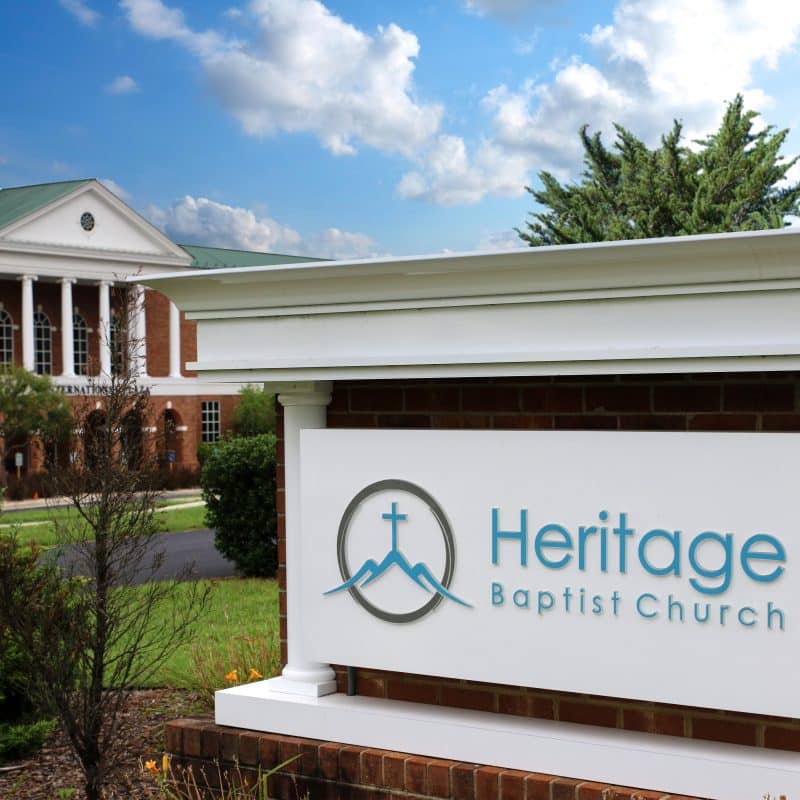How One Church Does It

Heritage Baptist Church in Lynchburg, VA, has put in place a missionary accountability plan. They view missionary accountability through two primary vehicles. Here is an overview of how this church tackles this area of ministry under the leadership of Pastor Allen.
The first is direct accountability – worker to church. This is greater among the 18 units that are sent out from the congregation than those they support from other churches. Heritage often refers to their sent missionaries as extended staff. They provide financial support to these workers up to 50% of their budget needs. They visit them on the field, communicate directly via Signal, Skype, email, and through other means.
Heritage has a Missionary Debrief & Evaluation Tool (MDET) that does a very extensive debrief while discussing how the missionaries are doing (spiritually, physically, relationally, family, team, etc). The MDET also addresses work progress by evaluating the work against the missionaries own previously set goals and objectives (Heritage also participates in the goal-setting process). The MDET takes time! It requires up to 6 hours for the husband and wife to each complete and the church plans a minimum of two full days during an on-field visit (usually by missions pastor Allen and his wife) to discuss the MDET. This requires most of these visits to be a minimum of 5 days, allowing time to see other facets of their ministry and enjoy some encouraging fellowship together. Time constraints limit these visits to about once every four years. The in-between-years are supplemented by the ongoing communication, visits from the church’s Sending Team (lay support and encouragement structure), and furlough support. The MDET is not a scoring mechanism, it is a vehicle to generate conversations that allow for deep member care and for ministry focus.
Another level of accountability is for those not sent out from the congregation, but by another church and Heritage joins in the missionaries’ support. Heritage calls these people supported missionaries. Typically, the church provides between 10-20% of their total budget need. There are now 13 missionary units in this category. Because Heritage is not the primary sending church, the level of accountability is different. The relationship is more about stewardship than accountability. The church does not direct their activities but does desire to participate in what they are doing. This has been difficult to navigate at times. These workers are asked to re-apply for financial support every 4 years. The church asks the question, “If they were applying today for the first time, knowing what we know, would we decide to support them?”
The other vehicle for accountability is indirect accountability – worker to agency to church. Heritage recognizes that they are delegating some of the responsibility and authority of caring for, guiding, holding accountable, etc. to a mission agency. The church maintains a list of preferred agencies. These agencies have the challenge of meeting the needs of the missionaries and the many varied demands of multiple churches. Pastor Allen notes that any agency that even makes a diligent effort at that objective deserves recognition. The indirect accountability that Heritage has received is typically via a phone call when there is a challenging situation (often preceded by direct communication from the missionary).
The church has never received an evaluation that was performed by the agency of any of its missionaries. One agency does forward to the church the self-evaluation required of the missionary each year. This is perhaps an area of opportunity for agencies to consider if they want to strengthen the relationship with the local church.
Heritage has not found sufficient meaningful accountability or encouragement in brief questionnaires sent out to missionaries. For this reason, they spend more time and money shepherding and stewarding those who have been entrusted to their care. The process is constantly being tweaked. In addition to efforts noted above, Heritage has started their own agency structure as an option for those they want to send directly from the congregation.
Does your church wish to share its approach to sending and supporting missionaries? If so, please send us your article.

